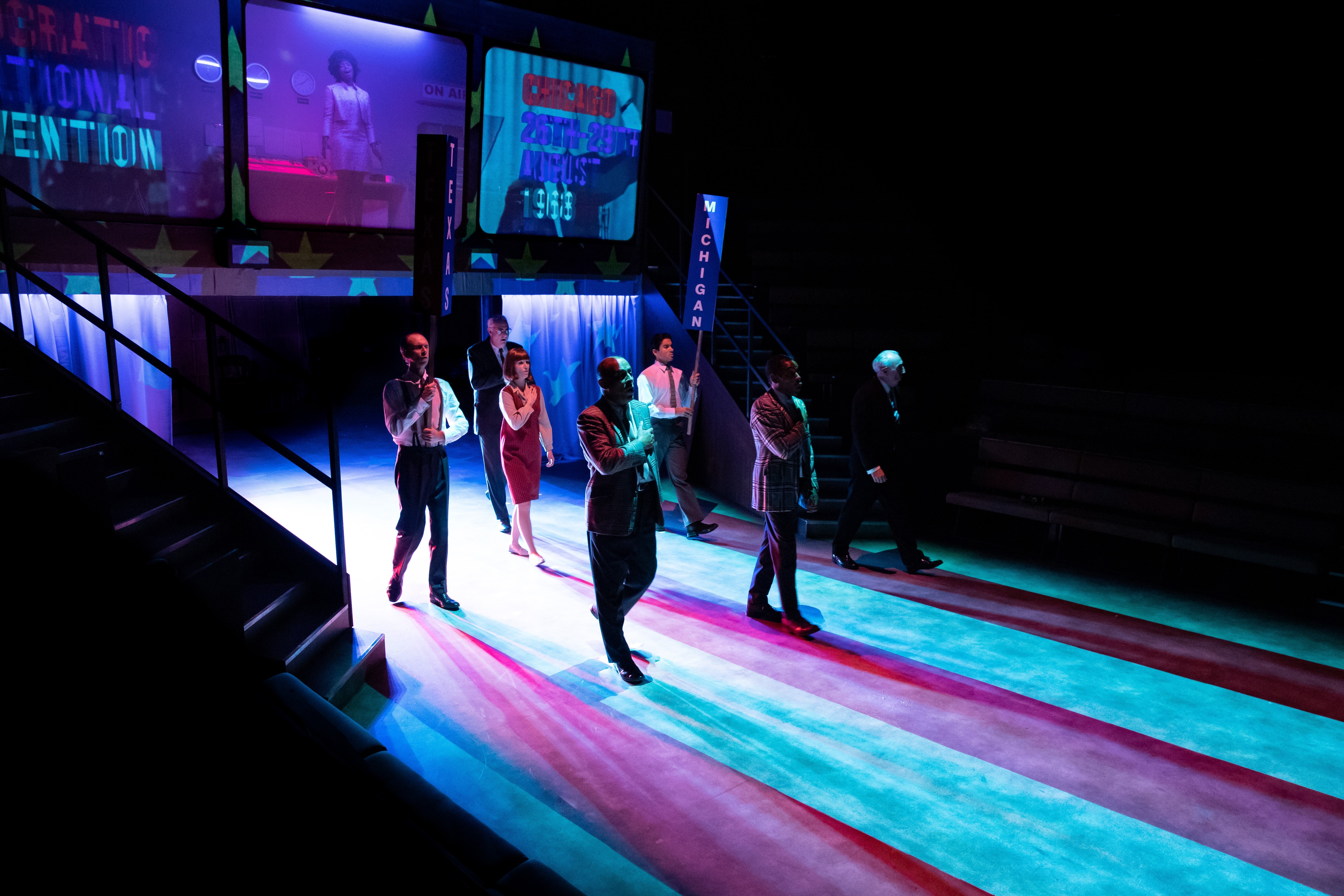Best of Enemies review: Pushes the boundaries of what can be done on stage
New play from ‘Quiz’ writer James Graham finds comedy within political division

Your support helps us to tell the story
From reproductive rights to climate change to Big Tech, The Independent is on the ground when the story is developing. Whether it's investigating the financials of Elon Musk's pro-Trump PAC or producing our latest documentary, 'The A Word', which shines a light on the American women fighting for reproductive rights, we know how important it is to parse out the facts from the messaging.
At such a critical moment in US history, we need reporters on the ground. Your donation allows us to keep sending journalists to speak to both sides of the story.
The Independent is trusted by Americans across the entire political spectrum. And unlike many other quality news outlets, we choose not to lock Americans out of our reporting and analysis with paywalls. We believe quality journalism should be available to everyone, paid for by those who can afford it.
Your support makes all the difference.Hate the screaming matches that make up modern-day televised political debates? Well you can blame Gore Vidal and William F Buckley Jr for that. Back in 1968, ahead of the US election in which Richard Nixon would be elected and the Republicans regained power, these two invented the whole “liberal vs conservative” debate format. Every day at the political party conventions, commentators Vidal and Buckley would take swipes at each other’s politics and personalities in a hugely popular TV format. This culminated in the showdown to end all showdowns, during which Vidal called Buckley a “crypto-Nazi” and Buckley spat back: “Now listen you queer, stop calling me a crypto-Nazi, or I’ll sock you in the goddamn face”, all pretence of civility gone.
Best of Enemies, a co-production from the Young Vic and Headlong, tells this story while pushing the boundaries of what can physically be done on stage, as playwright James Graham has always done. Where his Who Wants To Be A Millionaire? drama Quiz integrated game-show elements where audiences voted electronically whether they thought the coughing major did it or not, Best of Enemies once again is at the cutting edge of design innovation. Bunny Christie’s set sees three rooms hover above the stage, acting as both a TV control room overlooking the studio and as television screens themselves. Original footage of famous speeches, from Martin Luther King’s “I have a dream” to Enoch Powell’s “Rivers of Blood”, is projected here, while the actors on stage mouth the words verbatim.
But for a show that is technically slick throughout (and features an insanely impressive ensemble cast), the most thrilling moments come during the TV debates, when the archive clips are replaced with a live feed being filmed on stage. Somehow this is the second show I’ve reviewed this week that’s used this technique, but it never feels like a gimmick here. With their faces blown up behind them, every snarl, eye roll and quickly concealed look of panic is exposed. David Harewood’s Buckley, in particular, is a performance rooted in facial expressions, with the actor lashing out his tongue and smiling with only half his mouth as the commentator himself did.
On paper, these two men couldn’t seem further from each other, but it’s the actors’ abilities to highlight their similarities that makes the show so interesting. As Vidal, Charles Edwards has a schmoozy charm and an utterly effortless confidence – it feels like he was born to play the role. Harewood is captivating, but Buckley is clearly the harder part of the two to play, with the line between the hard-nosed conservative and the onscreen showman wafer thin at many points. The real-life Buckley was also white and was known for his anti-civil rights, pro-segregation viewpoints. Harewood has admitted that he originally turned the role down because it “didn’t make any sense”, and while his casting is exciting and imaginative, there’s a nervousness in his performance. It does work within the live TV set-up, but you can’t shake the sense that he’s not 100 per cent comfortable in the role.

Best of Enemies opens and closes in our modern day, serving to remind us of the devastating impact this moment would have on the political TV landscape. But we can hear the similarities between the Sixties and today in the script, where Buckley refers to Vietnam war protestors as “college elites” and conservatives as the “silent majority” and Vidal warns of ecological collapse and issues in the food supply chain. In explaining it with this framing device, some of those subtleties are removed. The audience already understands that this was a history-making moment, because we’re still feeling the effects of reducing politics to “light entertainment” today – less ripples, more tsunami waves crashing down again and again.
‘Best of Enemies’ runs at the Young Vic until 22 January 2022



Join our commenting forum
Join thought-provoking conversations, follow other Independent readers and see their replies
Comments